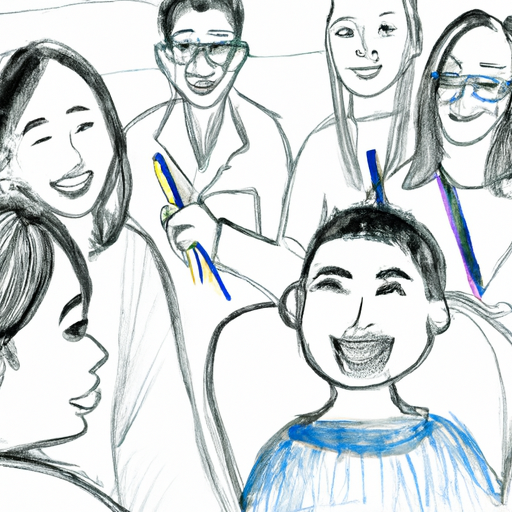Providing comprehensive dental care to patients with special needs requires a deep understanding of their unique dental needs, as well as tailored treatment approaches. These individuals often face various challenges that can impact their oral health, making it crucial for dental professionals to be equipped with the necessary knowledge and skills to diagnose and treat their conditions effectively. In this article, we will explore the diagnosis and symptoms of dental issues in patients with special needs, discuss the causes behind these conditions, and delve into the most effective treatment methods. Additionally, we will highlight the importance of breaking barriers and ensuring accessible and inclusive dental care for these individuals, promoting their overall well-being and quality of life.
1. "Understanding the Unique Dental Needs of Patients with Special Needs: Diagnosis and Symptoms"
Patients with special needs can present a unique set of challenges when it comes to dental treatment. These individuals may have physical, intellectual, or emotional disabilities that require special care and attention. Understanding their specific dental needs is crucial for providing them with the appropriate diagnosis and treatment.
Diagnosing dental issues in patients with special needs can be complicated due to their limited communication skills or ability to express discomfort. Dentists and dental hygienists must rely on their expertise and observation skills to identify potential problems. Regular dental check-ups are essential for early detection of any oral health issues that may arise.
Symptoms of dental problems in patients with special needs can vary depending on the individual’s condition. Some common signs include tooth pain, difficulty chewing or swallowing, bad breath, swollen gums, or a reluctance to eat certain foods. It is essential to note that some patients may not exhibit any apparent symptoms, emphasizing the importance of regular dental examinations to prevent potential complications.
The causes of dental issues in patients with special needs can be multifactorial. Poor oral hygiene practices, limited access to dental care, and certain medications or medical conditions can contribute to their dental problems. Additionally, individuals with special needs may have difficulties in maintaining proper oral hygiene due to physical limitations or cognitive impairments, making them more prone to dental issues.
To address the unique dental needs of patients with special needs, a comprehensive approach is necessary. Dentists should take into account the patient’s medical history, physical abilities, and cognitive capacities when designing a treatment plan. Collaboration with other healthcare professionals, such as physicians or speech therapists, may also be required to ensure holistic care.
Creating a comfortable and accommodating dental environment is crucial
2. "Tailored Dental Treatment Approaches for Patients with Special Needs: Causes and Effective Treatment Methods"
When it comes to providing dental treatment for patients with special needs, it is essential to adopt tailored approaches that consider the specific causes of their condition and employ effective treatment methods. Understanding the causes behind the special needs is crucial as it allows dental professionals to customize their approach and provide the most appropriate care.
There are various causes that can lead to special needs in dental patients. One common cause is developmental disabilities, which encompass a range of conditions such as autism, Down syndrome, and cerebral palsy. These disabilities can affect a person’s cognitive, physical, and social abilities, making it challenging for them to receive standard dental treatment.
In addition to developmental disabilities, other causes of special needs can include genetic disorders, intellectual disabilities, sensory impairments, and behavioral disorders. Each of these conditions presents unique challenges in terms of diagnosis, treatment, and patient management. Dental professionals must be well-versed in identifying these causes and adapting their treatment approach accordingly.
To provide effective dental treatment for patients with special needs, several methods can be employed. Firstly, communication is key. Dentists and their team should establish clear and effective communication channels with patients and their caregivers. This helps in understanding the patient’s needs, fears, and limitations, allowing for a more successful treatment experience.
Another important aspect of tailored treatment approaches is the modification of the dental environment. Dental clinics can create a calm and soothing atmosphere by using visual aids, such as pictures or videos, to explain procedures to patients with limited communication abilities. Additionally, the use of special chairs or adjustable equipment can enhance patient comfort during treatment.
Moreover, dental professionals should undergo training and gain knowledge about the specific needs of patients with various conditions.
3. "Breaking Barriers: Ensuring Accessible and Inclusive Dental Care for Patients with Special Needs"
Breaking Barriers: Ensuring Accessible and Inclusive Dental Care for Patients with Special Needs
Providing dental care for patients with special needs can be a challenging task, requiring specialized knowledge, skills, and a compassionate approach. These individuals often face multiple barriers when it comes to accessing dental treatment, including physical, cognitive, sensory, and communication limitations. It is crucial for dental professionals to understand these barriers and actively work towards creating an environment that is accessible and inclusive for all patients.
One of the primary barriers faced by patients with special needs is the lack of awareness and understanding among dental professionals. Many dental practitioners may not have received adequate training or exposure to treat patients with various disabilities. As a result, these individuals may encounter difficulties in receiving an accurate diagnosis and appropriate treatment. To overcome this barrier, it is essential for dental schools and continuing education programs to incorporate comprehensive training on treating patients with special needs. This would enable dental professionals to develop the necessary skills and confidence to provide quality care for this population.
Another significant barrier is the physical accessibility of dental clinics and facilities. Many dental practices are not equipped to accommodate patients with mobility impairments or those who rely on assistive devices such as wheelchairs. The absence of ramps, accessible bathrooms, and proper seating arrangements can make it extremely challenging for patients with special needs to access dental care. Dental clinics must invest in making their facilities more accessible by installing ramps, widening doorways, providing adjustable treatment chairs, and creating accessible bathrooms. By doing so, they can ensure that patients with special needs can comfortably navigate and receive dental treatment.
Communication barriers also pose a significant challenge for patients with special needs. Some individuals may have



